
Why has the NYC subway gone off the rails?
60 Minutes goes inside one of the busiest subway systems in the world to find out why the trains aren't running on time
Watch CBS News
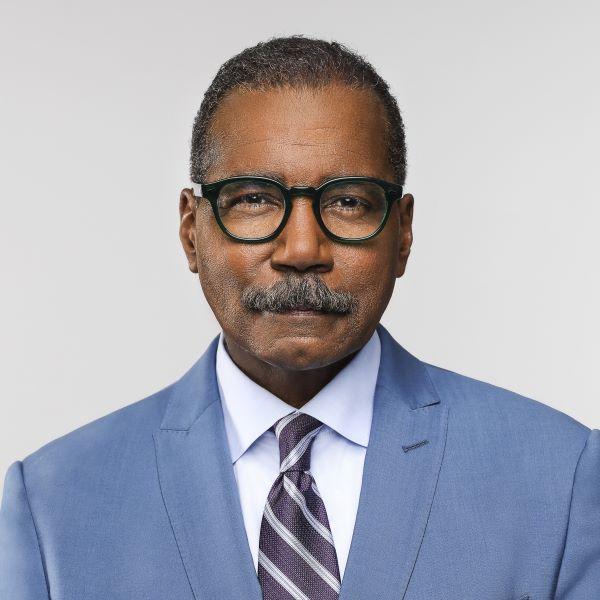
Bill Whitaker is an award-winning journalist and 60 Minutes correspondent who has covered major news stories, domestically and across the globe, for more than four decades with CBS News. He joined 60 Minutes in 2014 and the 2024-25 season is his 11th on the broadcast. Whitaker first arrived at CBS News as a reporter in 1984.
Whitaker has been honored with multiple journalism awards, including two Alfred I. duPont-Columbia University Awards (2023, 2017), a Peabody Award (2018), the RTDNA's highest honor, the Paul White Award for career achievement (2018) and numerous Emmy Awards.
Most recently at 60 Minutes, Whitaker interviewed French President Emmanuel Macron on the war in Ukraine and France's relationship with the U.S. He reported from Uganda on virus hunters searching for new pathogens to help prevent another pandemic. Whitaker sat down with former senior technical adviser Denver Riggleman who was inside the January 6th committee. He also visited the Notre Dame reconstruction that has continued four years after a massive fire tore through the French cathedral.
Previously for the CBS newsmagazine, Whitaker's investigation into "ghost guns" highlighted the legal purchases of gun parts that criminals are using to make deadly weapons and avoid licenses and background checks. He reported on the race for a vaccine and drugs to combat the coronavirus and the use of artificial intelligence to track the contagion. In 2019, Whitaker had the first television interview with sexual assault survivor Chanel Miller and earlier that year was the first to report on the evidence states were using to sue the makers of generic drugs in what state's attorneys general described as a massive collusion and price-fixing scheme that cost consumers billions.
Whitaker's investigation with The Washington Post into the origins of the opioid crisis has won more awards than any other work at 60 Minutes. The first report in the two-part series revealed how the DEA's efforts to curb the epidemic were hampered by a law pushed by drug industry lobbyists. The report was credited with forcing the law's chief sponsor, a congressman, to withdraw his nomination for the Trump Administration's drug czar. The next installment showed how the biggest opioid case in U.S. history against one of the world's largest drug distribution companies was settled by the government in a deal that shocked DEA agents. The joint reporting won eight awards including a duPont-Columbia University Award, a Peabody Award, an Emmy Award, and an RTDNA Murrow Award.
Whitaker's reporting at 60 Minutes has taken him abroad frequently to Asia, Africa, Europe, Mexico and the Middle East. He led a timely investigation of the vetting process Syrian refugees undergo before coming to the U.S. and interviewed the highest-ranking North Korean official to defect in decades. He covered the funeral of Nelson Mandela from South Africa, reported from Japan on the Fukushima nuclear disaster and from Haiti on their tragic earthquake. Whitaker was in Kabul during the early stages of the war in Afghanistan.
Domestically, his stories have provided keen insights into the hot-button issue of race and policing in America with his reports from Cleveland, Chicago and most recently, Tulsa, Oklahoma, where he landed the first interview with the city police officer accused of manslaughter for shooting an unarmed Black man. His stories have drawn attention to death penalty issues in the U.S. and America's heroin epidemic. Whitaker chronicled the epic battle to capture and hold Mexico's infamous drug lord Joaquin "El Chapo" Guzman, gaining rare access to investigations on both sides of the border.
Prior to joining 60 Minutes, Whitaker covered virtually every major news story on the west coast since he was posted to the Los Angeles bureau in 1992. He reported regularly for the CBS Evening News and other CBS News broadcasts. He also contributed to CBS Sunday Morning, turning out feature stories and thoughtful profiles on Barbra Streisand, Norman Lear and Gladys Knight and more. One of his most memorable Sunday Morning interviews was with ex-boxer Mike Tyson. Whitaker has also sat down with former First Lady Michelle Obama and Mexican President Enrique Pena Nieto.
In 2008, Whitaker covered Mitt Romney's presidential campaign. He was CBS News' lead reporter on the 2000 presidential campaign of George W. Bush.
Before his assignment to Los Angeles, Whitaker served as CBS News' Tokyo correspondent (1989-92). He covered stories throughout Asia, including the pro-democracy uprising in Tiananmen Square, military coup attempts in the Philippines and the enthronement of Japan's Emperor Akihito. He was in Baghdad for the build-up to Desert Storm.
Whitaker was based in Atlanta from 1985-88 where he won an Emmy Award for his reports on the collapse of Jim and Tammy Bakker's television ministry and covered the 1988 presidential campaign of Michael Dukakis.
Prior to joining CBS News in 1984, Whitaker was a correspondent for WBTV-TV, the CBS affiliate in Charlotte, N.C. He began his broadcast journalism career at KQED-TV in San Francisco where he was a producer, associate producer and researcher/writer.
Whitaker was born and raised in the Philadelphia area. He graduated from Hobart and William Smith Colleges with a B.A. degree in American History and from Boston University with a master's degree in African American Studies. Whitaker also holds a master's degree in journalism from the University of California, Berkeley. He has been awarded honorary Doctorates of Humane Letters from Hobart and William Smith Colleges (1997) and Knox College (2015.)
Whitaker lives in New York City with his wife.

60 Minutes goes inside one of the busiest subway systems in the world to find out why the trains aren't running on time
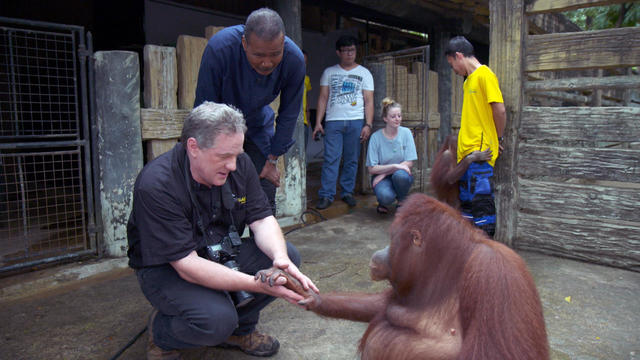
The "National Geographic" photographer shows 60 Minutes how his shots come together and why he started his Photo Ark project
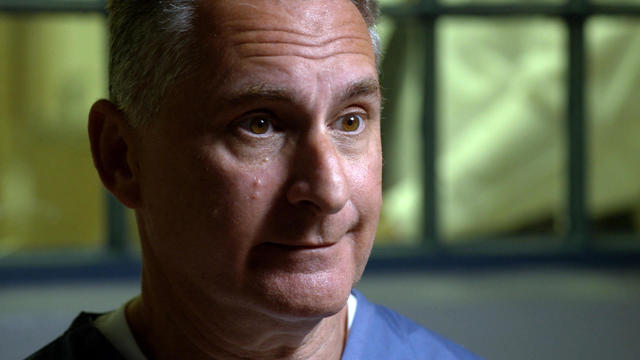
Dr. Barry Schultz is serving 157 years in prison after he prescribed enough opioids for a prosecutor to call him one of Florida's, "most notorious drug dealers." In his only interview, Schultz says he's a scapegoat

The world's only water ambassador, appointed by the Netherlands, says damage from hurricanes could be lessened with the help of Dutch-innovated stormwater management
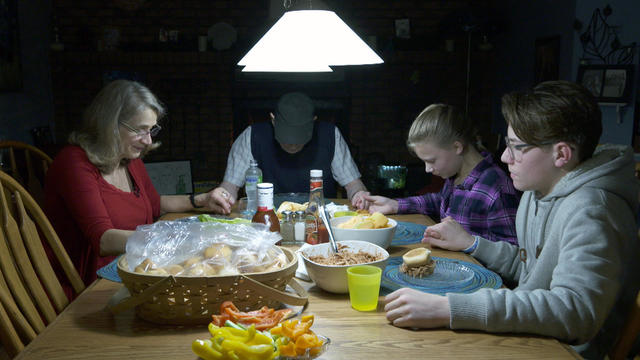
A million children now live with their grandparents primarily due to their parents' addictions, increasingly because of opioids
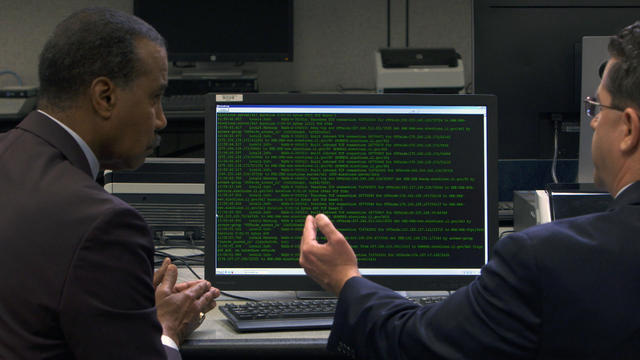
Russian operatives launched a widespread cyberattack against state voting systems during the 2016 presidential election. Former officials say no votes were changed but an Election Day attack could have created chaos at the polls

The Oscar-winning actress dropped out of middle school to pursue acting and by 21 was headlining major motion pictures

After 28 years in space, the Hubble Space Telescope is sending back some of its most beautiful and revealing images from across the vast universe

Russian operatives launched a widespread cyberattack against state voting systems during the 2016 presidential election. Former officials say no votes were changed but an Election Day attack could have created chaos at the polls

When it comes to climate change, California Governor Jerry Brown says President Trump doesn't have the fear of the wrath of God
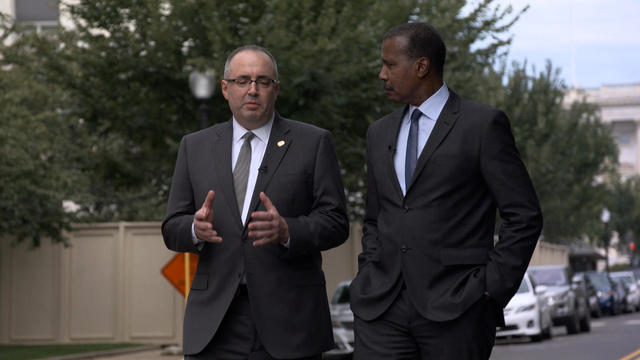
Whistleblower Joe Rannazzisi says drug distributors pumped opioids into U.S. communities -- knowing that people were dying -- and says industry lobbyists and Congress derailed the DEA's efforts to stop it
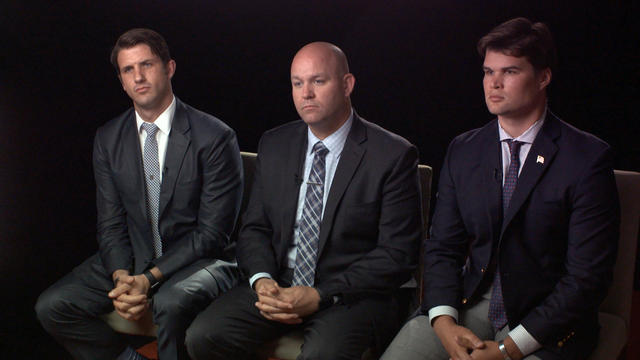
A classified report blames human error for the deadliest friendly fire incident of the Afghan War involving U.S. soldiers. Soldiers who were there say that's wrong

A million children now live with their grandparents primarily due to their parents' addictions, increasingly because of opioids
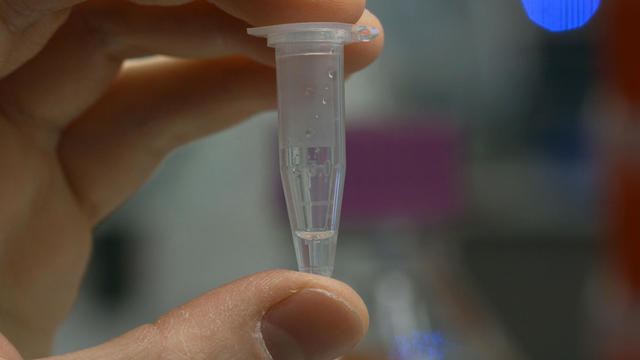
A new tool could be the key to treating genetic diseases and may be the most consequential discovery in biomedicine this century
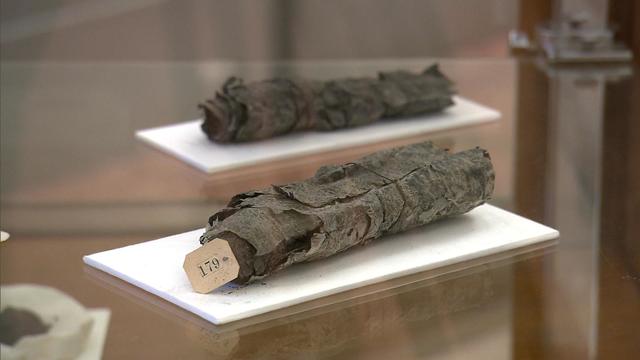
Scholars believe the damaged scrolls of Herculaneum could contain lost works of Greek philosophy, Roman poetry, or early Christian writings